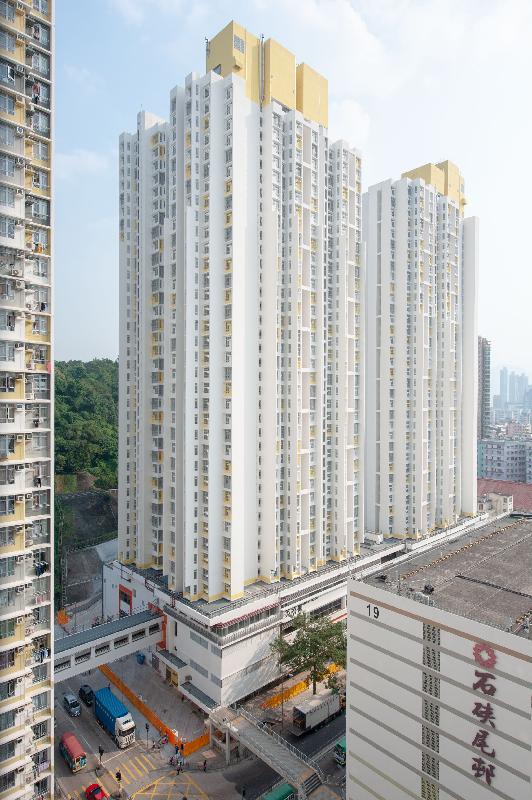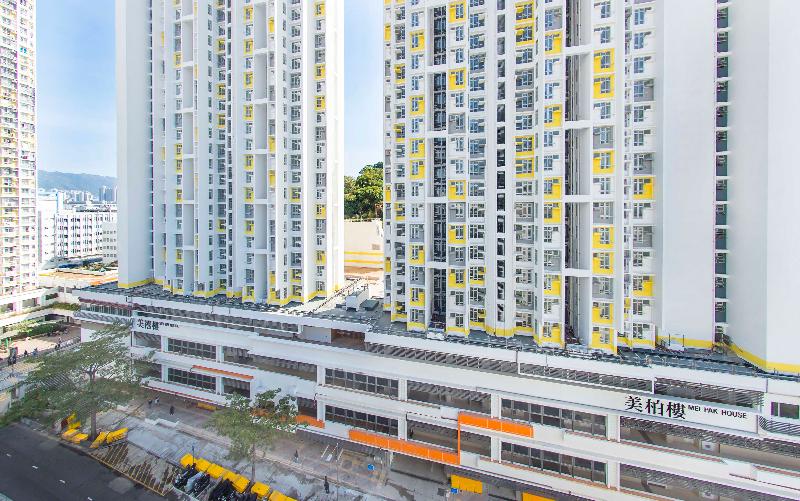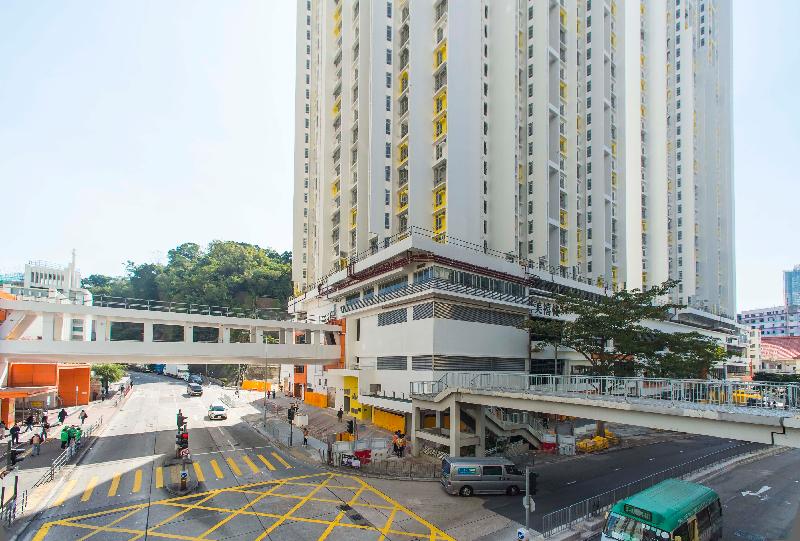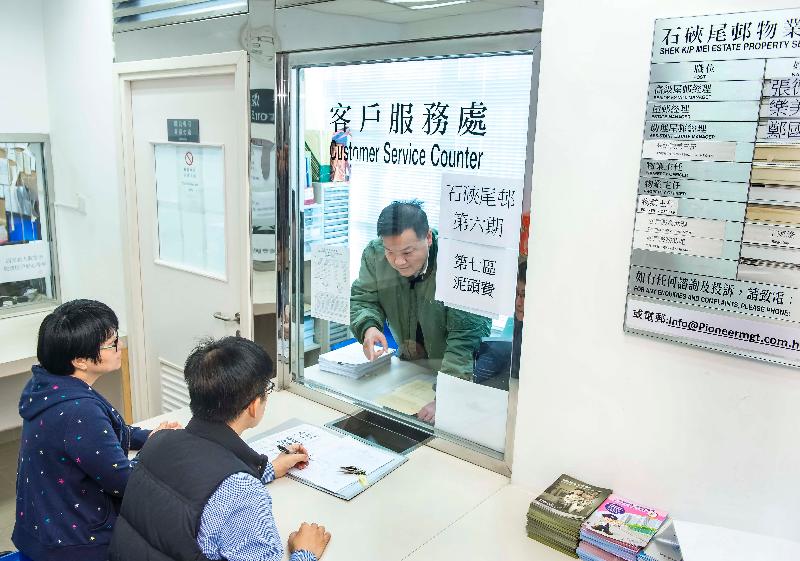HA completes construction of Shek Kip Mei Estate Phase 6 (with photos)
The following is issued on behalf of the Hong Kong Housing Authority:
As part of its continuous effort to provide quality homes to low-income families with housing needs, the Hong Kong Housing Authority (HA) has recently completed the two residential blocks of the Shek Kip Mei Estate Phase 6 redevelopment in Sham Shui Po. The intake of residents commenced yesterday (December 6).
The two non-standard residential blocks are Mei Hei House and Mei Pak House, both 33 storeys high. They provide a total of 1 056 public rental housing units for about 3 700 residents. The various flat types include one/two-person, two/three-person, one-bedroom and two-bedroom units with the smallest flat size at about 14.05 square metres and the largest at about 35.8 sq m. The monthly rents range from $1,200 to $3,060.
“The design layout of the blocks maximises outside views while minimising overlooking towards other blocks,” a spokesman for the HA said.
“To enhance tenants’ accessibility and the connections of the estate facilities, a covered footbridge linking Phase 6 and Phase 2 of Shek Kip Mei Estate is provided,” he said.
Numerous recreational facilities are provided in Phase 6 including a badminton court, a children’s play area, an elderly fitness area and chess tables for residents’ enjoyment.
Redevelopment of Shek Kip Mei Estate (Phase 1) was the first public rental housing estate project to adopt comprehensive universal design with an objective of providing a barrier-free living environment that allows ageing in place and integrating people with different abilities into a harmonious community. In the redevelopment of Phase 6, universal design features include doorways and passageways with a minimum width of 75 centimetres in general inside dwelling units, as well as thresholds that are lowered and bevelled to ensure easy access for those using wheelchairs or walking aids.
Non-slip floor tiles, space for future grab bar installations, and lever-type sink/shower mixers and door handles are provided for the sake of home safety and convenient use for both children and the elderly. Moreover, larger buttons and switches are installed at a height within easy reach by people of different ages.
Other facilities in common areas adopting universal design include easily operated self-closing doors and entrance gates, lifts with a voice synthesiser, door phones with Braille and letter boxes at a lower level for wheelchair users.
Shek Kip Mei Estate Phase 6 will provide 12 shops, one market shop and 11 market shop stalls at the ground and first floors with a total lettable area of about 1,900 sq m. The commercial premises will provide shops suitable for the operation of businesses such as a Chinese restaurant, a café and a bakery to meet residents’ basic daily needs.
A temporary clinic under the Hospital Authority and a District Health Centre under the Food and Health Bureau are being planned for the second floor.





